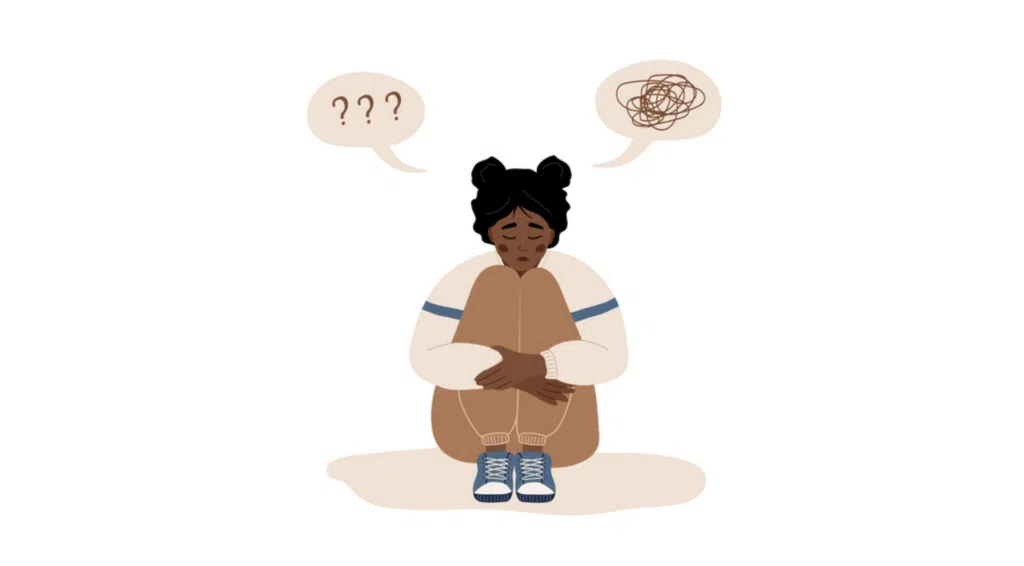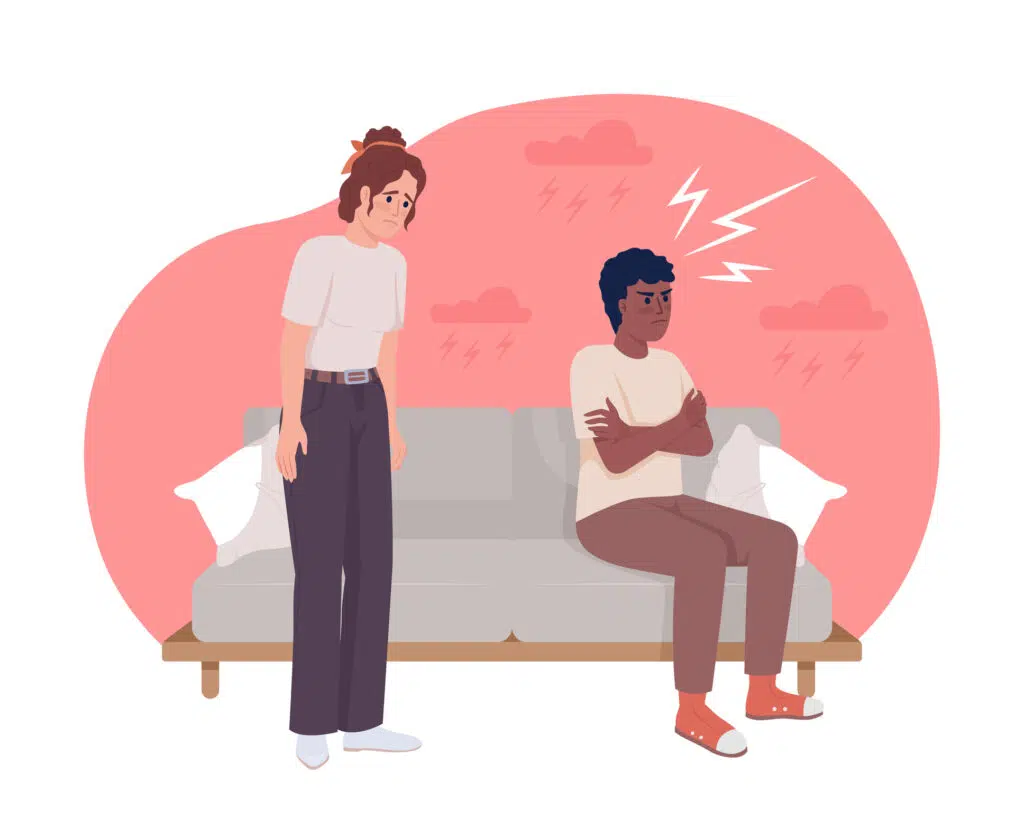How to Know If My Adolescent Teen Needs Therapy

Raising teens is hard. They often feel stressed and overwhelmed. During adolescence, teens experience rapid growth physically, and cognitively. This influences how they make decisions, feel, and think. It can be challenging, as a parent, to know when you need to step in or ask for help.
Sometimes, talking to your teen is a bit like speaking to a wall. It’s normal for teens to be moody, irritable, and overly sensitive at times. Teenagers are figuring themselves out and making sense of the world. It’s tough to spot the symptoms that your teen needs help or if they are simply going through behavior that is normal during that life stage. By knowing the signs to look out for, you can get the help your teen needs.
10 Signs Your Adolescent Teen May Need Therapy
Many young people today are experiencing mental health problems. Over 1 in 10 youth are experiencing depression which severely impacts their ability to function at work, with family, or with friends. An estimated 49.5% of adolescents have struggled with a mental health disorder at some point in their life. For young people, it’s important that they can access the early intervention and treatment they need to get better and live life to the fullest.
- Change In Friendships
As a teenager, one of the many changes in their lives involves choosing friends. In most cases, teens select friends with similar externalizing behavior and break ties with those with differing acts. Interests change, and people grow, which impacts your friendships. While it’s normal to change friendships over time, is it normal behavior for your teen? If they withdraw completely from friendships, there could be a problem.
- Anger And Violent Behaviors
If your teen shows directed angry feelings towards those in their environment and reacts to these feelings by exhibiting violent behavior, they may need therapy. Learning how to express, respond to, and manage negative emotions such as anger is essential, especially among teens. If they can’t manage their anger, they have the potential to harm themselves or others. Therapy can help with anger management skills in your teen and also help find the root of the problem so they can shift their pattern of behavior.
- Big Changes In Sleep Habits
Significant changes in sleep habits, which could be either increased sleeplessness or excessive sleep, could be a sign of depression among teens, especially alongside symptoms such as hopelessness and frequent crying for over 2 weeks. Therefore, if your teen shows significant changes in their sleeping routine and other changes in behavior, it could be a sign they need extra help.
- Self-Destructive Behaviors
Self-destructive behavior is something you do that can hurt yourself, either physically or emotionally. These types of behaviors come in all shapes and forms. On the milder end, it could be behaviors that result in negative social results. However, severe self-destructive behaviors could include self-harm, eating disorders, substance abuse, and other risky behavior.
- They Are Isolating Themselves
Humans are social creatures. If your teen starts spending a lot of time alone and isolates themselves from friends and family, it could be a sign they are going through social anxiety or depression. While it can be normal for your teen to lock themselves away in their room from you, they might be socializing with their friends. When they withdraw socially from friends and family and isolate themselves, it could signify a more significant problem. They may need therapy to help them talk through their emotions and get treatment if they need it.
- Grades Are Dropping In School
Although all teens, at times, may experience fluctuations in their academics, a sudden drop could be a sign that something is wrong. This may be caused by changes in their social circle, especially friends, and general behavior. There are lots of reasons that grades could drop, but it’s important to understand how mental health can impact your teen and know the signs to be aware of.
- Experience A Significant Trauma
At any age, experiencing significant trauma can affect your life and mental health. If your teen has experienced significant trauma, they may need to speak to a therapist to process and work through it. Some examples of major trauma include the death of a friend or family member, a car accident, an assault, bullying, or a natural disaster.
- Struggling With A Major Life Transition
Adjusting to a drastic change can be difficult, especially involving a significant life transition. Examples of some of the major life transitions your teen may experience include changing schools, moving to a new neighborhood, or even welcoming a new sibling. These transitions are usually associated with stress as you try to adjust. Therefore, if your teen struggles to adapt to similar major shifts, speaking to a professional outside the family unit may help them be more open and process the transition more effectively.
- Substance Abuse Concerns
Substance abuse in teenagers is a serious concern. In addition, teen substance use is associated with other health risks such as issues with growth and development, risky behaviors such as crime, and the development of adult health problems like high blood pressure and heart disease. Therefore, if you have any concerns about substance abuse, it is important to seek help for your teen and access treatment early.
- They Talk About Death
If your teen is talking about death or suicide, it’s essential to address it. Certain factors increase the risk of suicide, like depression, a recent loss, alcohol and substance use, bullying, and a family history of suicide. Talking about death is something that should not be ignored. It’s important to speak to a professional, seek help from a therapist, or call a crisis hotline if you need advice.
How Thriving Center of Psychology Can Help
It’s difficult to know what’s going on in your teen’s mind and their thoughts and feelings. But if you spot any of the above symptoms and have concerns, your teen may benefit from speaking with a therapist.
There are many types of therapy that have different goals and approaches for treating and supporting mental health. Teens may be reluctant to go to therapy, so it’s important that when you first bring up the conversation, you stay calm and positive about the experience. Your teen may view therapy as a punishment for doing something wrong. When you talk about it, never frame therapy as a punishment, and remind them that it is completely confidential. Typically, you can have an agreement where your therapist will only tell you what your teen is willing to share, except if there’s a risk of serious harm.
If you have concerns and are looking for a therapist for your adolescent team, contact one of the team at Thriving Center of Psychology. You can schedule an appointment or call our offices in New York, California, Florida, New Jersey, Oregon, Minnesota, Illinois, Massachusetts, and Washington. You can find a therapist, either in person or through video teletherapy.

How to Move On After a Friendship Breakup
Friendship breakups can sting just as much as a romantic breakup. After all, you’re experiencing a loss of shared history and an understanding of each other that can leave you feeling lonely and isolated. Not all friendships are forever, but moving on from the loss of a friendship does take time and some self-compassion.

Signs You’re in a Toxic Relationship
A toxic relationship can chip away at your well-being and happiness. Toxic partners can be manipulative and charming, making it difficult to recognize the signs that you’re in a toxic relationship. You deserve to be in a supportive and healthy relationship.

10 Common Marriage Reconciliation Mistakes to Avoid After Infidelity
Infidelity can leave couples devastated. If you’ve been affected by infidelity and want to salvage your relationship, rebuild trust, or make a tough decision, keep reading for 10 common reconciliation mistakes to avoid after infidelity.

Survey: 72% of Americans are Stressing About the Upcoming Presidential Election
Political viewpoints in the U.S. have always been contentious, but is the impact of politics in the United States making it difficult for people to live their everyday lives? With some anticipating another brutal and long campaign season ahead of the upcoming 2024 presidential election, nearly half of Americans say politics is negatively impacting their mental health.




